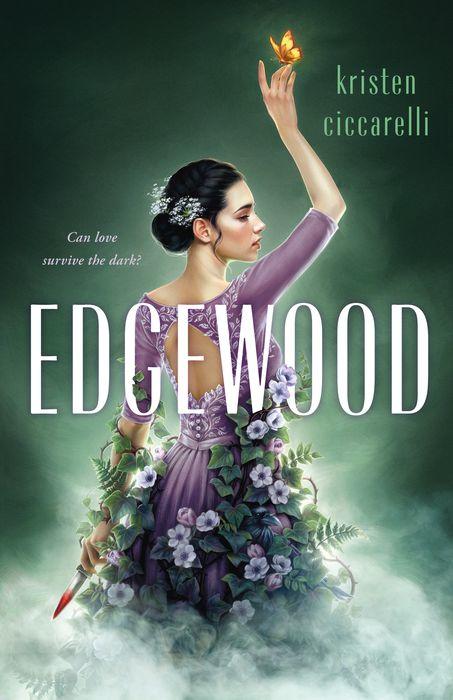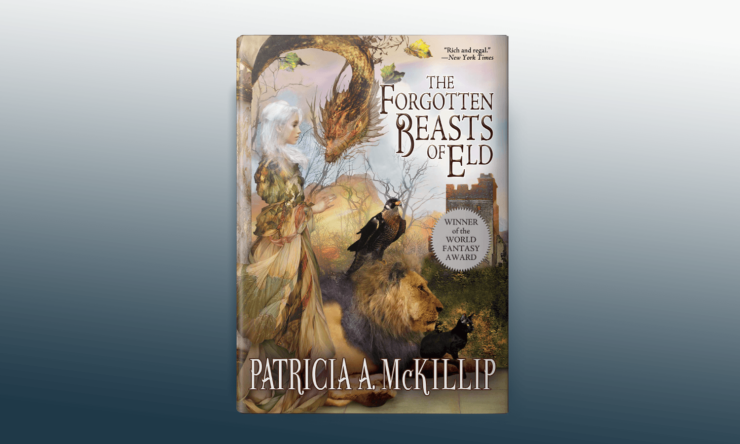Not all books stand the test of time. Some books that were so vibrant and profound when you discover them in childhood feel flat and flawed decades later. Some books, though, remain untarnished by age. The Forgotten Beasts of Eld by Patricia McKillip is such a one. Every time I reread this book, it feels as if it’s the first time. It’s like a mirror held up to my ever-changing self.
When I first came across The Forgotten Beasts of Eld, I was thirteen and picked it up for three reasons: it had a dragon on the cover, the description called it “romantic”, and it was about a wizard—but not just any wizard. A girl wizard. As a teen, I desperately craved stories where women took up spaces traditionally dominated by men. I was tired of the scripts dictating who and what I could be: always weaker, always the victim. I wanted women wielding power the way the women around me wielded power, in both large and small ways.
Fundamentally, that’s what The Forgotten Beasts of Eld is about: a young woman grappling with her own power.
In my early twenties, I re-read The Forgotten Beasts of Eld to study the character of Sybel, who had such a profound influence on me a decade earlier. When I was twenty-three, I reclaimed my love of writing stories—something I’d abandoned in my misguided attempt to grow up—and re-read the book in order to figure out how McKillip created a character who starts out as an untouchable, almost mythical creature and slowly becomes a flawed human being.
Sybel is a young wizard who lives alone with her collection of ancient creatures. At the beginning of the book, all she wants is to add a magical bird called the Liralen to her collection. The Liralen never comes when it’s called, however, because Sybel isn’t powerful enough to summon it. Or so it seems. Instead, a frightening creature named the Blammor answers Sybel, telling her the only reason she can hold power over it is because she has no fear. Sybel has no fear because she’s untouched by the world of mortal men and its concerns with love and hate, war and power. As she says early in the book, “I do not know loving and hating, only being and knowing.”
This first begins to change when a soldier brings a baby to her gate and begs her to care for it. The baby, Tamlorn, is the illegitimate son of a king this soldier is fighting a war against. Thinking a baby will be a nice addition to her collection of creatures, Sybel soon realizes that caring for Tamlorn requires much more of her than her creatures do.
In caring for the child, Sybel learns quite a lot about love. But in learning to love, Sybel also learns to hate—a process set into motion years later, when Sybel arranges for Tamlorn to meet his father, King Drede, at Tam’s request. Drede falls in love with Sybel and decides he wants her for himself.
On my most recent rereading of the book, I noticed something I hadn’t seen previously: that the more powerful Sybel becomes, the more afraid she is. The link between her fear and her power begins with King Drede.
Wanting her for his wife, Drede hires a wizard greater than Sybel to take her will from her. It’s an act that will make her utterly loyal and obedient to him. No amount of begging will save her from her fate, and the loss of her free will terrifies Sybel. At the very last moment she remembers the Blammor, summoning it to her, and the monster kills the wizard.
This is the first time we see Sybel afraid.
The encounter teaches her how to hate, and from that hate grows a desire for revenge. It lures her into the world she swore to never be part of: the world of mortal men. A place of war and fear, of jealousy and revenge, where she can use people like chess pieces in a plot to bring down the man who betrayed her. But in her thirst for revenge, her hatred overrides her love, and her actions start hurting the people around her. We see this for the first time with Coren, the soldier who brought Tamlorn to her and a man she marries to get back at Drede. Sybel admires Coren’s pure heart and wants to protect him from the truth of what she’s doing by keeping him unaware of her machinations. But when Coren walks in on Sybel controlling the mind of a lord, she steals the memory out of Coren’s head to stop him from putting the pieces together.
It’s the very same thing Drede wanted to do to her, and as soon as she realizes it, Sybel starts to tremble and cry. This is the second time in the book we see her afraid, only this time she fears her own self.
And yet, she can’t stop wanting to destroy Drede. Even when doing so will devastate Tamlorn, Drede’s son, who she raised and loves. Even when Coren finally figures out what she’s plotting, and begs her not to go through with it. She doesn’t want to stop despite the harm it’s causing those she loves and the damage she’s doing to her relationships.
“Drede should never have tried to ruin me,” she tells Maelga, defending herself when confronted by the old woman, who responds: “He is doing it now.”
On the night before her revenge is complete, the Blammor pays Sybel a visit. It’s here that Sybel learns she’s no longer in control of the nightmarish creature because even though she’s more powerful than ever—she has the entire kingdom in her pocket now—she is no longer fearless. In fact, she’s terrified. Not of Drede, but of what she herself is becoming.
That night, the Blammor forces Sybel to look inside herself and what she finds there nearly kills her. Before it can, she frees the ancient creatures under her command along with the mighty lords she’s controlled in her war against the king. In doing so, she gives up her revenge, and with it, her hatred. When one of the creatures asks what has set her free, she says, “My eyes turned inward and I looked. I am not free. I am small and frightened, and darkness runs at my heels”.
Sybel, at her most powerful, is shackled by fear. It’s the hidden cost of a power fueled by hate. A power that seeks to control and destroy. Only in giving it all up can she unlock her chains and walk out of her prison. Ironically, it’s this very thing—her freedom—that the king tried to steal in the first place. And once she takes it back, the Liralen reveals itself. It’s a bird that cannot be owned, she understands now. Like her, it must come freely.
I’ve arrived at the end of yet another reread of The Forgotten Beasts of Eld, and once again, I find myself wanting to be like Sybel. This time, it has nothing to do with the dragons or the romance or the powerful wizard at the story’s heart, but my ever-evolving perception of what it means to be strong. These days I’m wondering if strength has less to do with power and more to do with how willing and able you are to give it up.
I admire the way Sybel saves herself, and I long for courage like hers. Courage to let go of power and hatred and fear in order to stay open and trusting and free.
Buy the Book


Edgewood
Kristen Ciccarelli grew up on her grandfather’s grape farm where she spent her childhood running through his vineyards and adventuring in the deep, dark woods behind his house. She now resides in a blustery seaside cove on a misty island in the North Atlantic. When she’s not writing, you can find her hiking in the headlands with her dog, playing board games with her husband, or sipping tea by the wood stove. She is the author of Edgewood and the internationally bestselling Iskari series.










